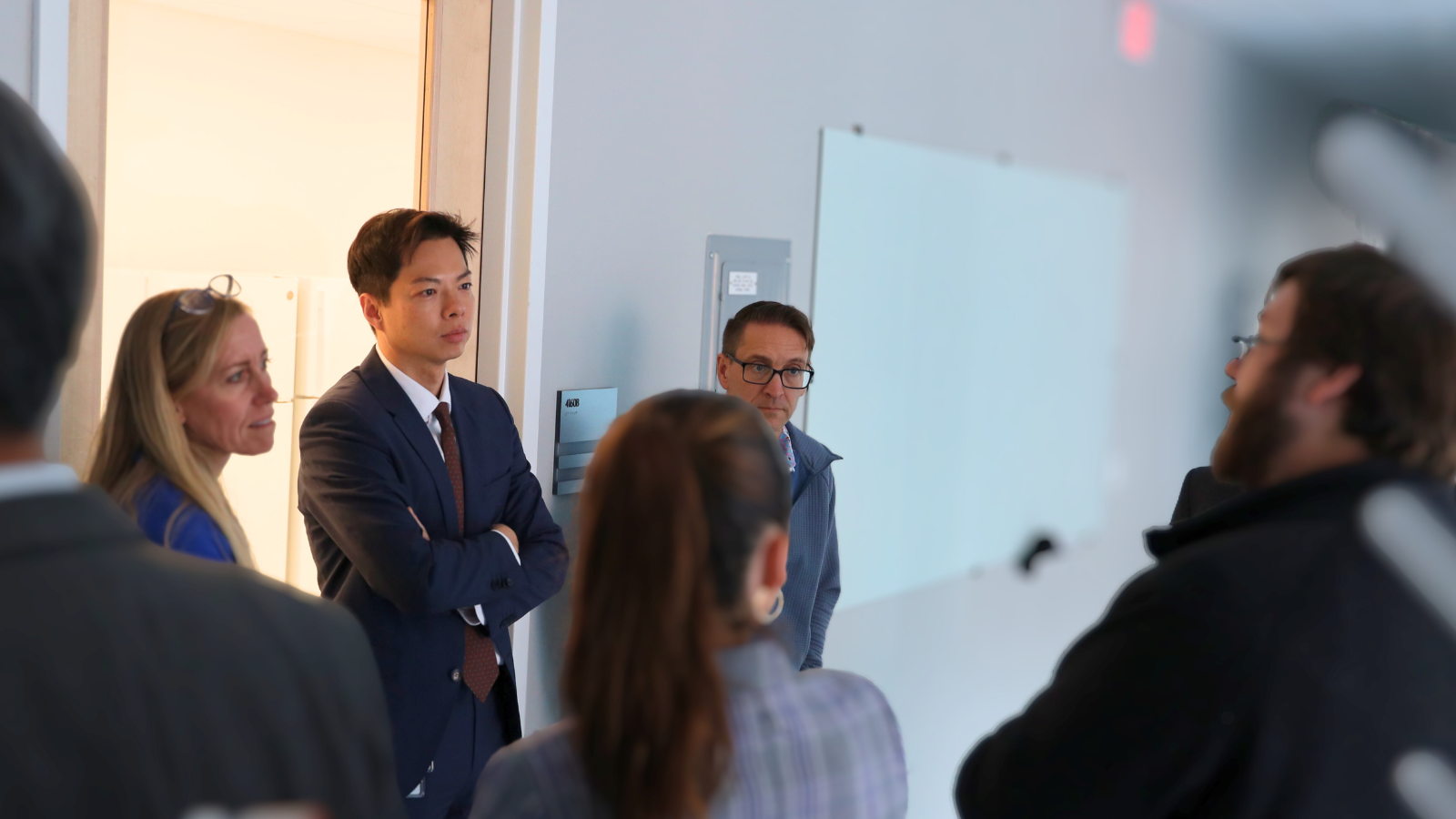News Story
2 More BioE Students Join Ethics Essay Contest Finalists
Fischell Department of Bioengineering sophomore Bryan Hofferbert and junior William Richbourg have been identified as two of the five finalists in the in the Institute of Biological Engineering's (IBE) annual bioethics essay contest. Their work was chosen from a nationwide field of entries submitted by both undergraduate and graduate students. This announcement means that now four of the five finalists are from the University of Maryland's undergraduate program in bioengineering. Hoffbert and Richbourg will join freshmen classmates and fellow finalists Stevephen Hung and Zachary Russ at the IBE's annual conference this March, where they will all present their papers and the winners will be decided. The first-place essay will be considered for publication in the Journal of Biological Engineering, the official journal of the IBE.
Hofferbert's essay, titled "The Ethics of Biological Re-Writing," discusses the synthetic biology's emerging practice of re-writing, in which scientists design and produce living systems that possess desirable and predictable traits, and may have interchangeable genetic parts or expanded genetic codes that enable these new forms of life to do things ordinary living organisms or systems cannot. Our ability to design living systems tailored to specific needs, Hoffbert writes, raises a number of ethical issues. Hoffbert suggests carefully weighing the costs and advantages. While he describes several beneficial uses of rewriting under development or being considered, such as creating bacteria that produce the active ingredient of an anti-malaria medication, he also points out the potential dangers re-written organisms and systems might pose to existing natural ones should they be released from the lab into our environment, and the ethical dilemma of extending the research to engineering human beings with particular qualities.
Richbourg’s essay, "Clones, and Immortals, and Bears! Oh, My!" argues that media focus on the more sensational possibilities of genetic engineering, such as human cloning, super-pathogens, and "designer babies," serves to fuel hysteria and does not accurately represent the current state of the field, which in turn downplays its past and current benefits to human health. Richbourg urges a better understanding of what genetic engineering is, pointing out that the concept is not new—the thousands of years we have spent on the selective breeding of animals and crops, he writes, is a form of genetic engineering. Many new technologies, he continues, can and have been used for harm, and genetic engineering is no different—it will require strict oversight, but its development should not be ruled out simply because it could be used in undesirable ways.
The IBE is a professional organization that promotes research and interest in biological engineering, education, professional standards, interaction between academia, industry and government, public awareness, and responsible use of biologically engineered products. To learn more, Visit the Institute of Biological Engineering web site »
Related Story:
"BioE Freshmen Are Finalists in Bioethics Contest" »
Published February 23, 2008












